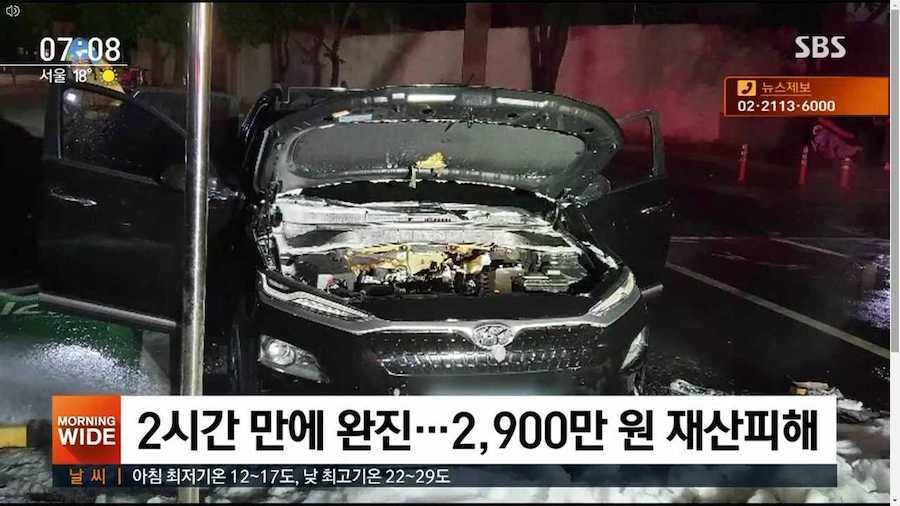Hyundai Faces Class-Action Lawsuit In South Korea Due To Kona EV Fires

GM's supplier for the Chevrolet Bolt battery pack is LG Energy Solution. This happens to be the same company Hyundai chose to supply the Kona Electric battery pack. Both cars are currently facing large recalls, but Hyundai has another hurdle to overcome: a class-action lawsuit from affected customers in South Korea.
According to Reuters, 200 of them have joined this lawsuit demanding depreciation compensations due to the battery fires that happened mostly in South Korea, but not only there. There were cases in Canada and Austria as well, but only one in each of these countries as far as we know. In South Korea, there were 11 reported fires.
The lawsuit wants to prove that this issue made used Kona Electric prices fall sharply because of the reputation damage it caused. To compensate for that, each plaintiff demands 8 million won – or the equivalent of $7,200. But there is more.
Hyundai proposed to solve the problem with a software update, but these customers do not think that will be enough. Apart from the monetary compensation, they also want the battery packs to be replaced.
Hyundai and LG Energy Solution said they did not know the fires' cause, something that GM also claimed with the recall for the Chevy Bolt. In both cases, the remedy is the same: the software upgrade, which GM has phrased as "re-flashing" the battery management code.
What is different is that GM revealed the purpose for this change: limiting the maximum charging to 90 percent of the battery's capacity. That may also raise legal concerns because the cars would get less range than when the vehicles were bought.
This is not the only case involving South Korean battery suppliers. Samsung SDI faced a similar situation with the battery packs it sells both to Ford's and BMW's plug-in hybrid cars. After InsideEVs contacted the company to ask for an explanation, it said the automakers were the ones able to provide it, possibly due to non-disclosure agreements in place.
Related News
